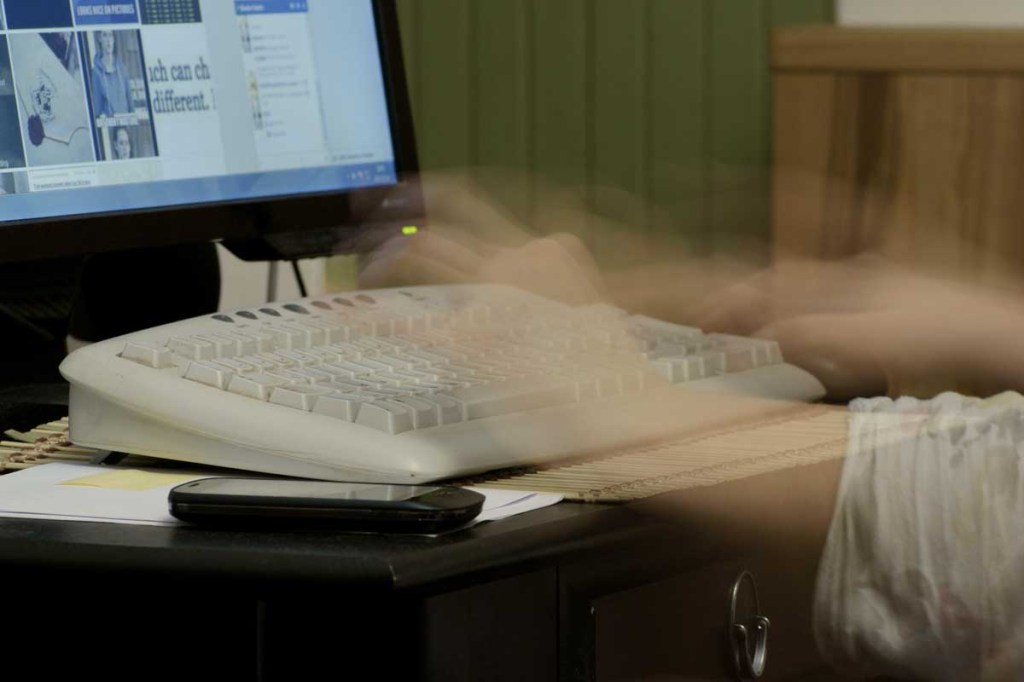Lawmakers seek to limit schools’ social media snooping
Published 3:00 pm Tuesday, November 17, 2015

- Lawmakers seek to limit schools' social media snooping
BOSTON — School administrators are increasingly prying into the cyberspace lives of students, in some cases hiring private companies to troll social media profiles for signs of bullying, drug abuse, threats of violence and other security risks.
The social media snooping has been given added impetus following a spate of recent school shootings that followed threats against others that the teenage gunmen posted on social media.
But civil liberties groups say monitoring online interactions amounts to an invasion of privacy.
“Schools don’t have a right to come into a student’s home and look at their handwritten diary, so why should they be able to look at someone’s online diary?” said Kade Crawford, director of the Technology for Liberty project with the Massachusetts chapter of the American Civil Liberties Union. “Everyone has a right to a private life, even kids.”
On Beacon Hill, state lawmakers are considering a bill — set for a vote Wednesday by the Senate — that would limit access to Facebook, Instagram and other social media outlets by public and private schools and companies.
The proposed social media privacy law would make it illegal for school administrators or employers to demand that job applicants or students hand over their social media passwords so that their accounts can be perused.
“You shouldn’t have to trade your privacy to have access to education or employment,” said Sen. Bruce Tarr, R-Gloucester, who supports the bill. “As social media proliferates, there’s a need for privacy protections.”
Tarr and other supporters of the bill say it includes exemptions for schools administrators to deal with potential security risks or police investigations tied to social network accounts. It also includes exemptions for employers, such as financial and securities firms dealing with trade secrets, which might require social media access.
“There’s a big difference between monitoring what students are saying in the public domain and being able to access someone’s account by forcing them to turn over their passwords,” Tarr said. “In my opinion, that’s no different than trying to subpoena someone’s phone records to see who they’ve been communicating with.”
Under the proposed legislation, students who believe their privacy has been violated could bring a civil action.
School administrators and companies also would be prohibited from reprimanding students or firing employees if they refuse to disclose social media accounts or provide a list of contacts associated with those accounts.
Social media websites allow users to make their profile private, but many don’t activate those protections.
More than a dozen states — including California, Illinois, Maryland, Michigan and New Jersey — have passed laws in recent years banning educational institutions and corporations from demanding social-media passwords. Similar legislation has been proposed in 20 other states, according to the National Conference of State Legislatures.
Recent court challenges have questioned whether schools have the legal authority to demand passwords.
Last year, a Minnesota student was awarded a $70,000 settlement by a state court after her school district forced her to turn over passwords for her Facebook and email accounts. As part of the settlement, the school district agreed to change its policies to protect students’ rights, according to the ACLU of Minnesota.
But school administrators say there is a pressing need to monitor students’ online interactions.
“This is the world they live in,” said Tom Scott, executive director of the Massachusetts Association of School Superintendents. “For many students, social media is their primary means of communication with others.”
Increasingly, school districts are turning to private companies to monitor social media for threats, he said.
Gary Margolis, president and CEO of Vermont-based Social Sentinel, contracts with school districts across the state and country to review students’ social media for potential threats ranging from suicide to gun violence.
Margolis said his company’s software “scans” publicly available media posted online. If it comes across a threat of violence, bullying or other safety issues, the company notifies the school, town or law enforcement officials.
“We’re not getting passwords, looking at text messages or private social media accounts,” Margolis said. “This is about identifying potentially serious threats that are telegraphed publicly, not invading peoples’ privacy.”
Still, the ACLU says schools shouldn’t be paying private companies to snoop on students, either.
“It’s really disturbing,” Crawford said. “That money would be better spent hiring a social worker who could speak to students individually about their online rights and responsibilities, rather than hiring ‘spooks’ to spy on children.”





